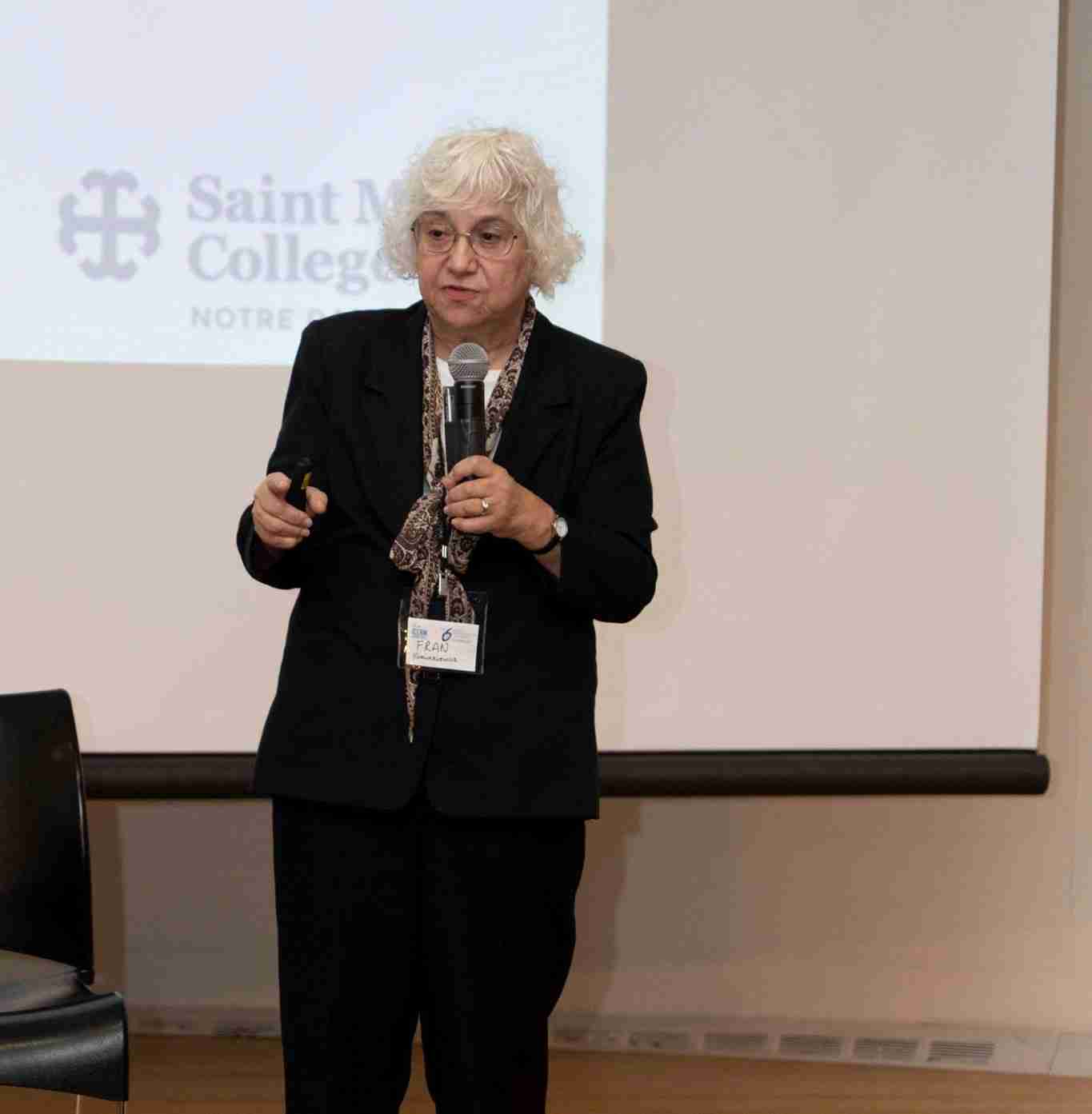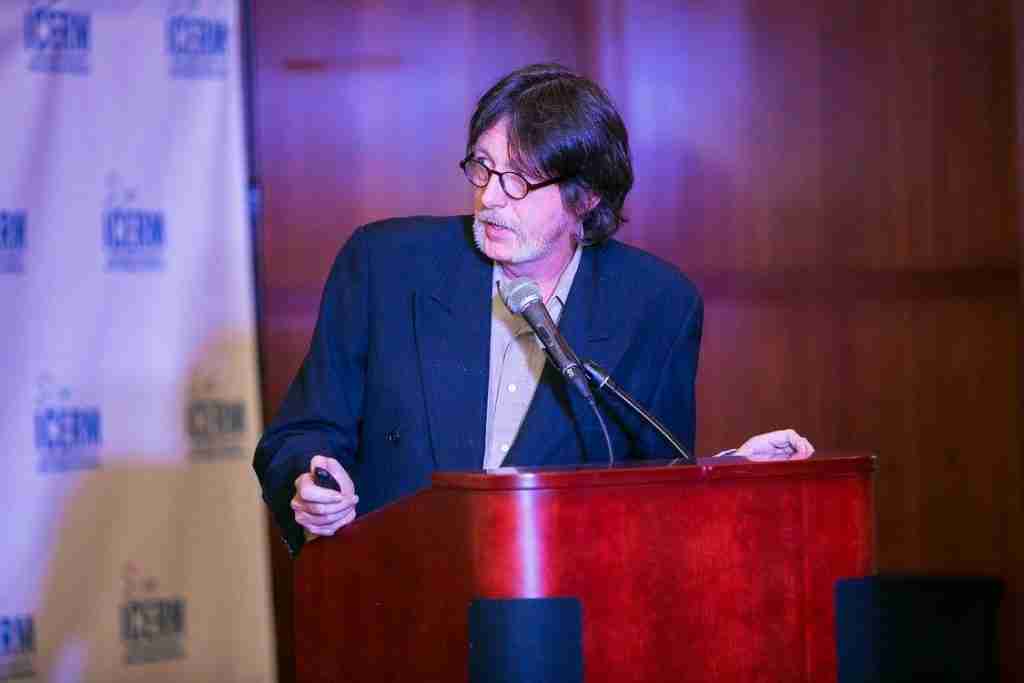2022 International Conference on Ethnic and Religious Conflict Resolution and Peacebuilding

Download Conference Program
CONFERENCE PROGRAM
Time Zone: Eastern Time (New York Time)
To register for the conference, click here.
Please note that our time zone is Eastern Time (New York).
Arrival of Participants and Welcome Reception (Meet and Greet)
Tuesday, September 27, 2022
Time: 5:00 PM
Location: Ophir Room
DAY ONE
Wednesday, September 28, 2022
9:00 AM Registration and Check-in
Location: The Reid Castle Entrance
Check in first at the Security Post when entering the college
9:00 AM Continental Breakfast
Location: Ophir Room
10:00 AM to 12:45 PM Plenary Session
Location: West Room
Virtual Room: Virtual participants should join this plenary session with the video call link:
10:00 AM Opening Remarks
Spencer M. McNairn, Public Affairs Coordinator at ICERM
Reading of Poem by Dana Wu, Master of Fine Arts Student at Manhattanville College
Basil Ugorji, Ph.D., President and CEO, ICERM
Craig Sevilla Donnelly, Director of the Sr. Mary T. Clark Center for Religion and Social Justice
Louise Feroe, Ph.D. Interim President of Manhattanville College
10:30 AM Keynote Speech
Religion and Track II Diplomacy: Lessons Learned in Pyongyang
Dr. Thomas J. Ward, Provost and Professor of Peace and Development, President (2019-2022) of Unification Theological Seminary New York, NY
Chair:
Arthur Lerman, Ph.D., Professor Emeritus of Political Science, History, and Conflict Management, Mercy College, New York
11:00 AM Q&A Session with the Keynote Speaker
11:30 AM – 12:45 PM Distinguished Speeches and Discussion
Benjamin Boykin II, Westchester County Legislator, District 5 (Representing White Plains, Scarsdale, West Harrison)
Joseph P. Castelli, Police Chief, White Plains Police Department, White Plains, NY
12:45 PM Conference Group Photo
1:00 PM – 2 PM Luncheon
Location: Ophir Room
Virtual Room: Virtual participants should join this luncheon distinguished speech with the video call link
Distinguished Speaker
Maria Smith Dautruche, Director of Westchester Center for Racial Equity at YWCA White Plains & Central Westchester
2:30 PM – 6:30 PM Insights from the Experts and Panel Discussions
2:30 PM Concurrent Panel 1:
Location: Presidents Dining Room
Virtual Room:
Hate Crime in Ethiopia’s Dessie City Administration: Causes, Consequences, and Possible Remedies
Dr. Yohannes Amene Tsegaye
Senior Expert on Deliverology and Innovation; Project Coordinator, Ethiopian National Volunteer Community Service Program, Ethiopian Ministry of Peace
Interethnic Conflicts in Ethiopia and the Invention of a Common National Identity by Prime Minister Abiy to Displace Ethnic Consciousness
Dr. Amanuel Isak Tewolde
Postdoctoral Research Fellow, Centre for Social Development in Africa, University of Johannesburg, South Africa
2:30 PM Concurrent Panel 2:
Location: East Library Room
Virtual Room:
Influence of Ethno-Religious Social Media Conflicts on Africa’s Under Development: A Case Study of Selected Areas in East Africa
Lydia Igwee
Lecturer, Department of Educational Foundations, College of Education Open and Distance Learning, Kampala, Uganda
3:30 PM Concurrent Panel 3:
Location: Presidents Dining Room
Virtual Room:
Refugees and Economic Development in Host Communities: A Case Study of Selected Refugee Settlements in Eastern Africa
Dr. Badru Hasan Segujja
Senior Lecturer, Peace and Conflict Management, International Relation and Diplomatic Studies, Kampala International University, Uganda
3:30 PM Concurrent Panel 4:
Location: East Library Room
Virtual Room:
Dialogue as a Tool to Foster Peace against Interreligious Conflict in Nigeria
Miriam Adaeze Uju Oguike
Senior Research Fellow, Institute for Peace and Conflict Resolution, Abuja, Nigeria
‘From Divided Past to Cohesive Future’: A Reflection on the Reconciliatory Mechanisms of (Yoruba) Traditional Approaches to Conflicts Resolution in Nigeria
Fasuan Emmanuel Olawale
PhD Student, Department of International Relation and Strategic Studies, Faculty of Arts and Social Science, University of Malaya, Kuala Lumpur, Malaysia
4:30 PM Concurrent Panel 5:
Location: Presidents Dining Room
Virtual Room:
US-DPRK Relations: Religion’s Mitigating Role
Dr. Thomas J. Ward
Provost and Professor of Peace and Development, Unification Theological Seminary New York, NY
COVID-19 Pandemic and Trans-Faith Humanitarian Action in Sri Lanka
Dr. Kalinga Tudor Silva
Professor, Department of Sociology, University of Peradeniya, Sri Lanka
4:30 PM Concurrent Panel 6:
Location: East Library Room
Virtual Room:
Climate Change, Environmental Justice, and Ethnic Disparity in the USA: The Mediators’ Role
Lisa Singh
Independent Mediator/Consultant/Trainer, Dayton Mediation Center, Dayton, OH
The Discourse of Othering: An Analysis of Politics of Inclusivity and Exclusivity in Kenya
Dr. Jesica Kinya Mwithia
Senior Lecturer, School of Communication, Daystar University, Kenya
5:30 PM Concurrent Panel 7:
Location: Presidents Dining Room
Virtual Room:
Conversion to Islam and Ethnic Nationalism in Malaysia
Dr. Nur Daut
Associate Professor, Asian Studies Programme, Kansai Gaidai University, Japan
A Study of Prophet Muhammad’s Conduct on Conflict Resolutions
Dr. Muhammad Shahbaz
Assistant Professor, Department of Islamic studies, University of Sargodha, Pakistan
5:30 PM Concurrent Panel 8:
Location: East Library Room
Virtual Room:
Hope for Intergroup Solidarity: Intersections Between Memory, Positionality, and Respect for Religious Salience among Diaspora Indian Christians
Dr. Autumn L. Mathias
Assistant Professor of Social Work/Sociology Program Coordinator, Elms College, Chicopee, MA
The Right to Freedom of Religion in India and the Impact of Hindutva on Religious Minorities in the COVID-19 ERA
Dr. Md Jahid Hossain Bhuiyan
Humboldt Postdoctoral Fellow, Max Planck Institute for Comparative Public Law and International Law, Heidleberg, Germany
6:30 PM Day One Closing Remarks by Basil Ugorji, Ph.D., President and CEO, ICERM
DAY TWO: Thursday, September 29, 2022
9:00 AM Registration
Location: The Reid Castle Entrance
Check in first at the Security Post when entering the college
9:00 AM Continental Breakfast
Location: Ophir Room
10:00 AM to 12:45 PM Plenary Session
Location: West Room
Virtual Room: Virtual participants should join this plenary session with this video call link:
10:00 AM Opening Remarks
Spencer M. McNairn, Public Affairs Coordinator at ICERM
Reading of Poem by Rachel Simon, Division of Diversity, Equity, and Inclusion, Pace University
10:30 AM Keynote Speech
Shelley B. Mayer, New York State Senator (Representing the 37th District) and Chair of the Committee on Education
Representatives of Governor Kathy Hochul, Governor of New York State:
Sibu Nair, Deputy Director of Asian American Affairs, Executive Chamber
Brandon Lloyd, Governor’s Lower Hudson Valley Regional Representative, Executive Chamber
Chair:
Arthur Lerman, Ph.D., Professor Emeritus of Political Science, History, and Conflict Management, Mercy College, New York
11:20 AM Q&A Session with the Keynote Speaker
11:40 AM Conference Group Photo
11:45 AM – 12:45 PM Insights from the Experts and Panel Discussions
11:45 AM Concurrent Panel 9:
Location: Presidents Dining Room
Virtual Room:
Child-Focused Accountability Mechanisms for Yazidi Community Post-Genocide (2014)
Brenda Hershey, Executive Director, TRY Global
and
Saman Omar, Lecturer, University of Duhok, College of Humanities Sciences, Iraq
Acceptance in Post-Genocide Rwanda: Success and Challenges throughout Action-based Reconciliation Model between Genocide Perpetrators and Genocide Survivors
Felix Bigabo
Head of Partnership, Capacity Building and Research, Prison Fellowship, Rwanda
11:45 AM Concurrent Panel 10:
Location: East Library Room
Virtual Room:
Ethno-Religiosity and Conflict in Africa: A Discourse Analysis and Resolution
Dr. Augustine Ugar Akah
Doctoral Candidate, Institute of International Political Sociology, University of Kiel, Germany
Peacebuilding: An Antidote to Religious and Ethnic Conflicts in Nigeria
Moses Onyekachi Nwakanma
Lecturer, Nnamdi Azikiwe University, Awka, Anambra State, Nigeria
1:00 PM – 2 PM Luncheon
Location: Ophir Room
Virtual Room: Virtual participants should join this luncheon distinguished speech with this video call link:
Distinguished Speakers
Seenaa Jimjimo, Executive Director, Oromo Legacy Leadership & Advocacy Association (OLLAA), Falls Church, VA
Nada Khader, Executive Director, Westchester People’s Action Coalition (WESPAC)
2:30 PM – 5:30 PM Insights from the Experts and Panel Discussions
2:30 PM Concurrent Panel 11:
Location: Presidents Dining Room
Virtual Room:
How we can Change from Strangers to Brothers
Junis Sultan
Doctoral Candidate, University of Heidelberg, Germany
Peaceful Coexistence of Multicultural Students on Campus as an Example of Ethnic, Racial and Religious Understanding
Eng. Christian Rhiugwasanye, M.Tech
Founder of Rhugwasanye Foundation in Democratic Republic of Congo
2:30 PM Concurrent Panel 12:
Location: East Library Room
Virtual Room:
The Role of External and Internal Forces in Myanmar Political Reforms Since 2010
Than Win Hlaing
Managing Director, T & K Maung Nan General Trading Co., LTD, Myanmar
Hindutva in the USA: Understanding the Promotion of Ethnic and Religious Conflict
Adem Carroll
Justice for All USA
3:30 PM Concurrent Panel 13:
Location: Presidents Dining Room
Virtual Room:
How the Cultural Religious Conflict has shaped Approaches to Ethnic Minority Representation in Northern Ireland Museums
Mairead (Margaret) Quinn
PhD Student, University of Ulster in Belfast, Northern Ireland
3:30 PM Concurrent Panel 14:
Location: East Library Room
Virtual Room:
Mosques as an Actor in the Prevention of Radicalization and Rehabilitation of Extremism
Dr. María Isabel García García
Non-Resident Fellow, Center of Global Affairs (NYU), New York
Community Development Projects as Panacea for bringing Communities Together: A Case Study of the Christian and Muslim Communities of Rupike Irrigation Project in Masvingo District, Zimbabwe
Simbarashe Munamati
Ph.D. Candidate, Religion and Development, University of Zimbabwe
4:30 PM Concurrent Panel 15:
Location: Presidents Dining Room
Virtual Room:
Ethnicity as a Tool to Pacify Religious Extremism: Case of Somalia Intrastate Conflict
Dr. John Kisilu Reuben
Colonel, Kenyan Military, Kenya
Women Politicking for Peace in Southern Cameroons: Takumbeng Women’s Society in Perspective
Dr. Lukong Stella Shulika
Post-doctoral Research Fellow, Durban University of Technology, Durban, South Africa
4:30 PM Concurrent Panel 16:
Location: East Library Room
Virtual Room:
Addressing Ethno-Religious Conflict: A Practitioner’s Toolkit
Lisa Singh
Independent Mediator/Consultant/Trainer, Dayton Mediation Center, Dayton, OH
Creative Responses to Religious Conflicts Using Restorative Practices
Priscilla Prutzman
Co-founder and Executive Director, Creative Response to Conflict, Suffern, NY
5:30 PM – 6:30 PM Closing Reception
Location: Ophir Room
6:30 PM – 8:30 PM INAUGURATION OF INTERNATIONAL DIVINITY DAY
Location: West Room
Virtual Room:
Introduction: Let’s Open Our Hearts
Welcome Message and Mantra Recitation
Rev. Sharon Callender, Interfaith Pastor, and Assistant Registrar, DSO, Manhattanville College
Opening Remarks
Basil Ugorji, Ph.D., President and CEO, ICERM
Craig Sevilla Donnelly, Director of the Sr. Mary T. Clark Center for Religion and Social Justice
Reading of Poem by Iain Haley Pollock, Director, Master of Fine Arts Program, Manhattanville College
Music
Reflections on Interreligious Understanding and Global Peace
First Reflection:
Sivachariar M.R. Ravi Vaidyanaat, Director of Religious Affairs and Spiritual Leader, The Hindu Temple Society of North America
Second Reflection:
Rev. Fr. Maxwell Wullar, SVD, Divine Word Missionaries, Intern at VIVAT International, NY
Third Reflection:
Imam Muhammad Shahidullah, President of Interfaith Center of USA
Fourth Reflection:
Dr. Charles Chikwado Ezeh, Self-help Coach, Speaker and Philosopher, Maryland
Fifth Reflection:
Rev. Sharon Callender, Interfaith Pastor, and Assistant Registrar, DSO, Manhattanville College
Music
Keynote Speech
Dr. Daisy Khan, D.Min, Founder and Executive Director, Women’s Islamic Initiative in Spirituality & Equality (WISE) New York, NY
ICERM Honorary Award Presentation
2022 Honorees:
Dr. Thomas J. Ward, Provost and Professor of Peace and Development, President (2019-2022) of Unification Theological Seminary New York, NY
Dr. Daisy Khan, D.Min, Founder and Executive Director, Women’s Islamic Initiative in Spirituality & Equality (WISE) New York, NY
Presenter:
Dr. Basil Ugorji, President and CEO, ICERM
Vote of Thanks
Spencer M. McNairn, Public Affairs Coordinator at ICERM
Download Conference Program
2022 International Conference on Ethnic and Religious Conflict Resolution and Peacebuilding held in The Reid Castle at Manhattanville College, Purchase, NY, USA, from Wednesday, September 28 – Thursday, September 29, 2022. Theme: Ethnic, Racial and Religious Conflicts Globally: Analysis, Research and Resolution.



